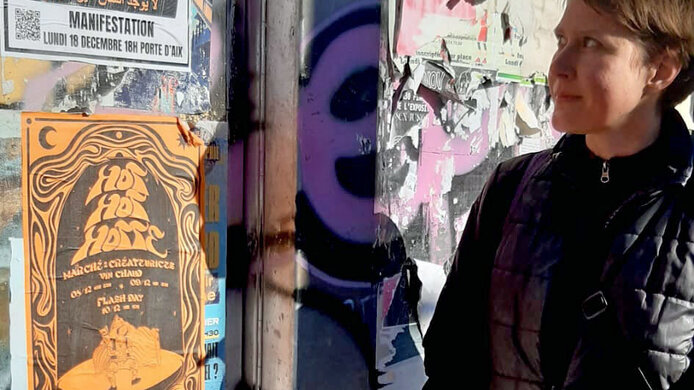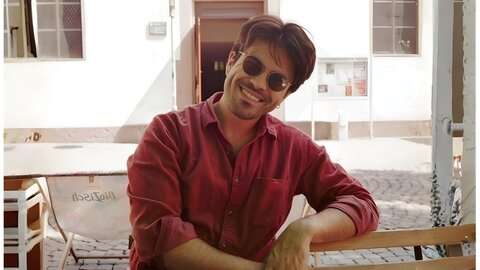France – states of emergency vs normality

In my Schrödinger project, I am investigating the repressive approach of the police and the judiciary in the context of protests as well as representations in the media (mass media and social media) in France in recent years. In this context I am focusing on how these issues are linked to states of emergency. My interest in states of emergency is both academic and personal, as I myself experienced the effects on protests of the “anti-terrorist” state of emergency from 2015 to 2017, which was imposed after the attacks in Paris and Saint-Denis. The consequences included restrictions on the freedom of assembly.
Questions from one protest to another
A lot has happened since then. Movements have evolved and there was a “health-related state of emergency” in the context of the Covid pandemic. But regardless of states of emergency, police violence is a characteristic of everyday protest life. When I arrived in Paris in early April 2023, the protests against the pension reform, now adopted, were in full swing. In June 2023, Nawel Merzouk, a French-Algerian teenager, was shot dead by a police officer in Nanterre during a traffic check. The ensuing revolts in various French cities were in turn followed by police and judicial repression. These impressions and the interviews I conducted with social-science and law experts, as well as discussions with lawyers, changed my research perspective.
In addition to “hard repression”, there is also a kind of “soft repression”, which involves a lack of material resources and spaces to get organized. It also includes the media disavowing the legitimate character of movements against “Islamophobia” or of “radical” climate activism. Furthermore, in the course of the summer 2024 Summer Olympics in Paris and Marseille, new states of emergency and protests are to be expected. Undocumented workers have already gone on strike at construction sites in Paris and safety regulations have been tightened. Among other things, algorithmic video surveillance will be tested during the games.
Between Paris and Marseille
I decided to start my research in Marseille because I already had social and activist contacts there. This is indispensable for qualitative research and enables me to take part in the hybrid seminars at CESDIP and also to work on my research. At CESDIP, I chose the renowned Institute of Criminal Law Sociology because of their many years of expertise in the field of protest policing and the researchers working there, particularly Fabien Jobard, who serves as the host researcher. As CESDIP pursues an interdisciplinary approach, this makes it possible for me to deal with approaches to the sociology of crime and criminal justice, some of which are new to me, and to combine these with political-science and postcolonial approaches.
Plenty of room for exchange
The management of CESDIP (Jacques de Maillard and Mathilde Darley) ensures a very pleasant working atmosphere, which provides a great deal of freedom, but also room for cooperation. The regular seminars, which are followed by a meal together, as one is wont to do in France, provide a pleasant context for exchanges, which I have come to appreciate very much. While seeming short at only 3.5 hours, the journey between Marseille and Paris by TGV is also a journey between worlds: between research and everyday life at the institute, between the “capital” and the “periphery”, between north and south. I always enjoy arriving in Marseille. There I can let my mind wander as I explore the bays of the Calanques.





